Pound Loses to Euro in Longest Run Since April Amid Global Risks
This article by Eshe Nelson for Bloomberg may be of interest to subscribers. Here is a section:
"Increasingly, the euro is a funding currency," said Steven Saywell, London-based global head of foreign-exchange strategy at BNP Paribas. "In periods of risk-off, it tends to appreciate. The reason for that is the market funds carry trades in euros, and when it needs to unwind those carry trades it buys the euro back."
With a €1 trillion quantitative easing (QE) program, the easy money policies of the ECB created the conditions for the Euro to be a favourable carry trade funding currency. Zero interest rates, easy credit conditions and mind boggling quantities on offer all contributed to this condition. The outperformance of Eurozone equities earlier this year was strongly influenced by traders borrowing Euro to buy Eurozone shares.
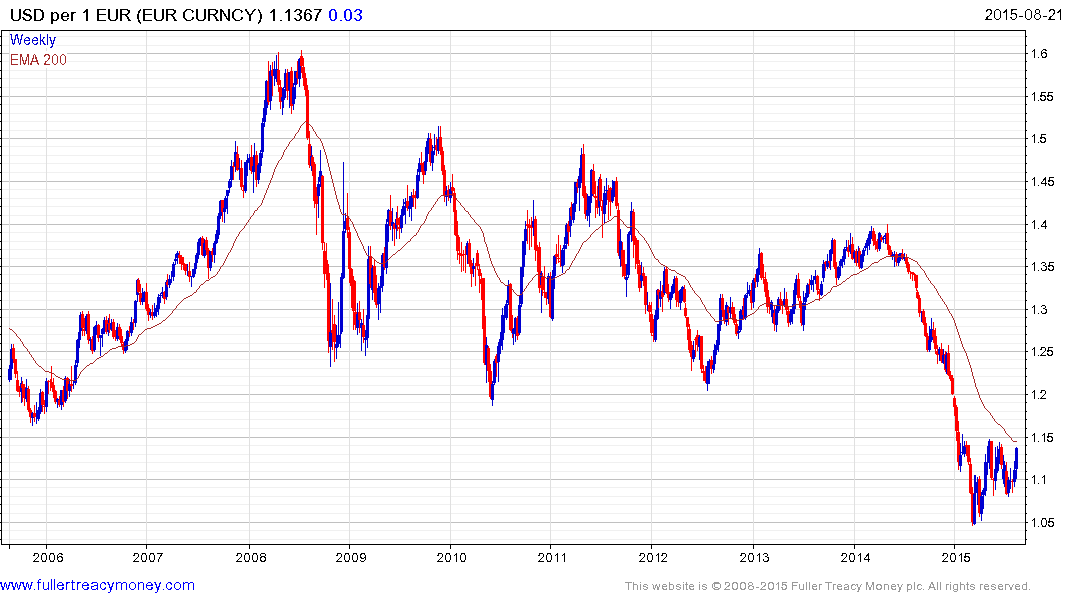
It's been a number of years since anyone talked about risk-on, risk-off trades but market veterans will recall this was most prevalent when the Fed was initiating QE programs then allowing them to expire which created a great deal of volatility in stock markets with high correlations across sectors. There is almost no prospect of the ECB removing its QE program so we are unlikely to go back to a risk-on, risk-off environment. However the recent strength of the Euro is a symptom of the fact that investors are taking some exposure off the table as trends deteriorate.
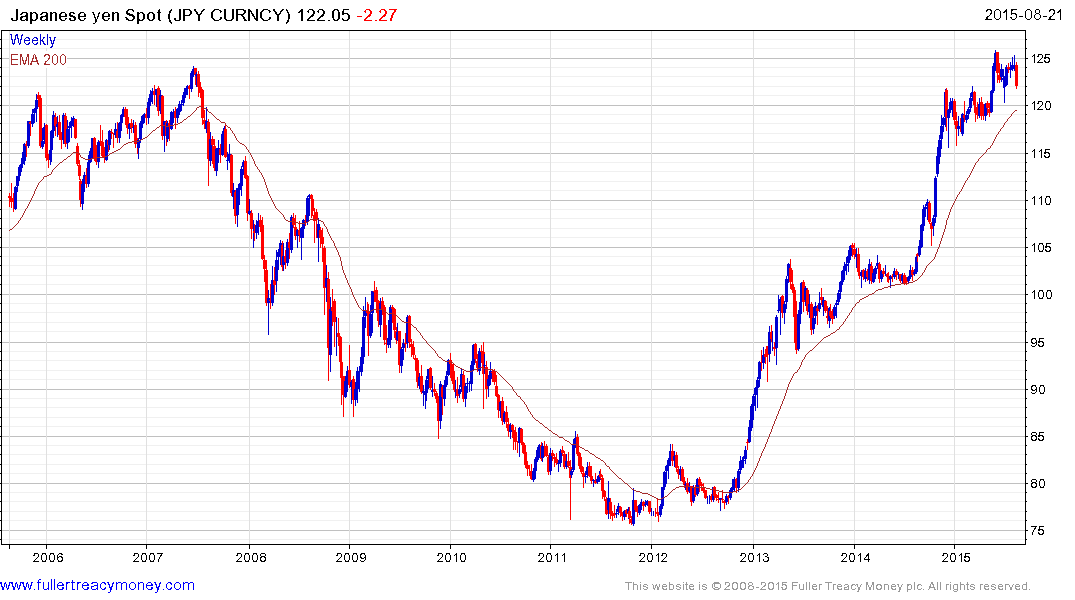
The Yen's newfound strength this week is an additional sign of deleveraging.
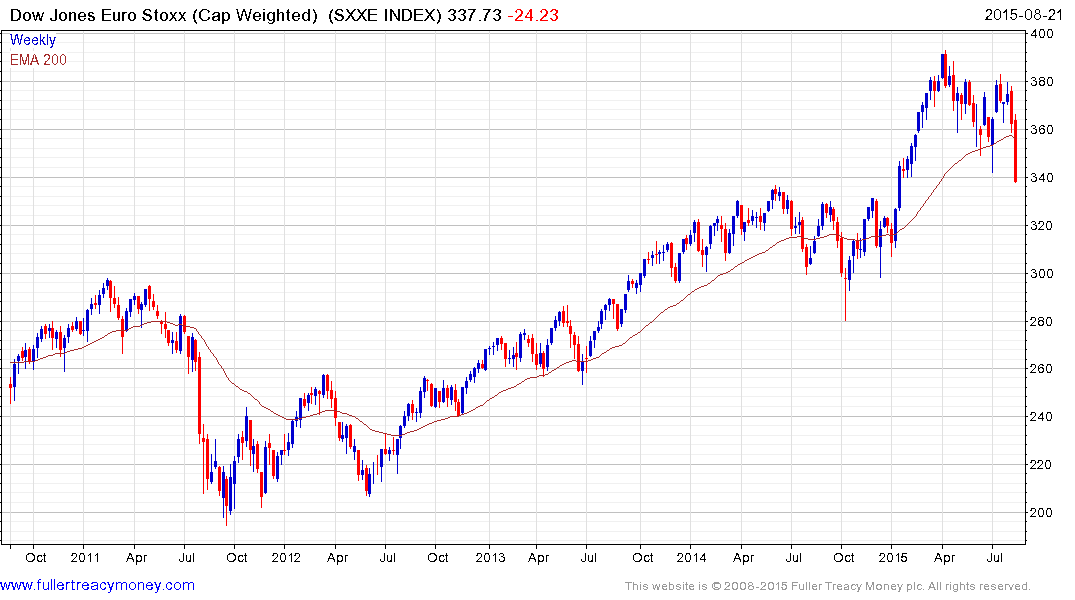
The Euro STOXX Index has been susceptible to large pullbacks over the course of the rebound from the 2009 low which reflected the flip-flop nature of central bank policy. That is no longer an issue under Mario Draghi but deleveraging is a concern. The Index pulled back sharply this week to test the early July low and a clear upward dynamic will be required to check the downward bias.
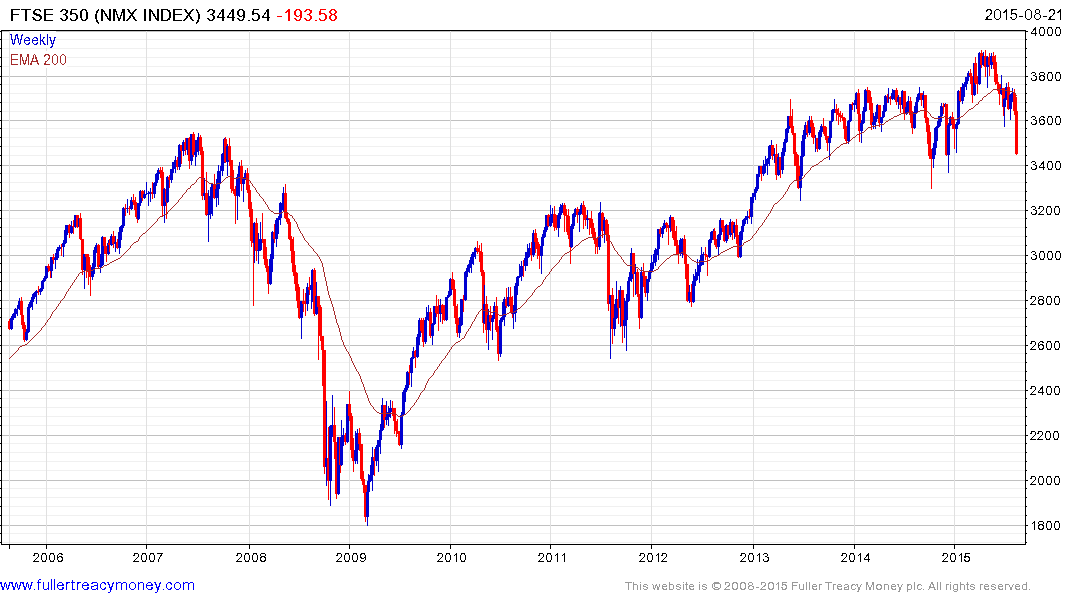
The FTSE-350 Index has been ranging with a mild upward bias, above its long-term range, for nearly 2 years. It pulled back sharply this week and a clear upward dynamic, similar to those seen following similar reactions in 2013 and 2014, will be required if medium-term scope for continued higher to lateral ranging is to be given the benefit of the doubt.
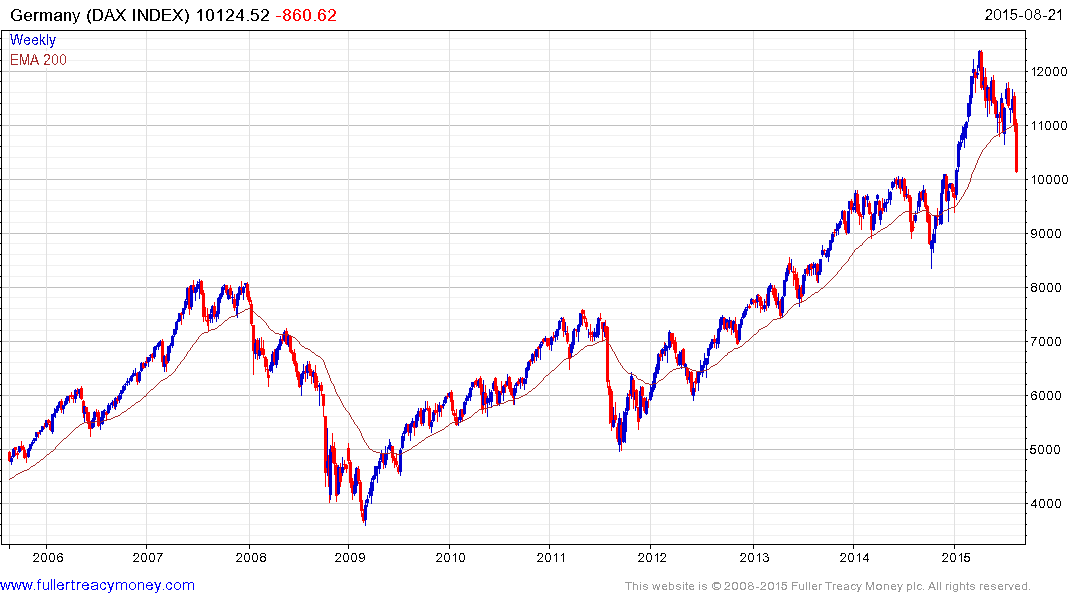
The DAX Index is rapidly falling back towards the psychological 10,000 level but a clear upward dynamic will be required to confirm that level as an area of potential support.
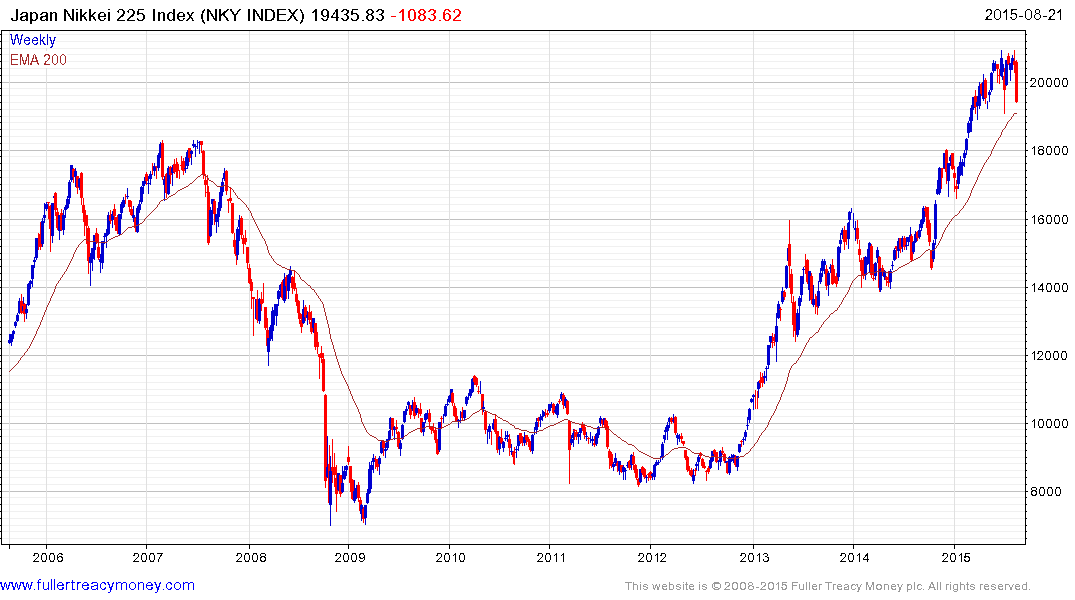
The Nikkei-225 has developing Type-2 top medium-term formation characteristics and will need to rally quickly to offset scope for a further test of underlying trading.


